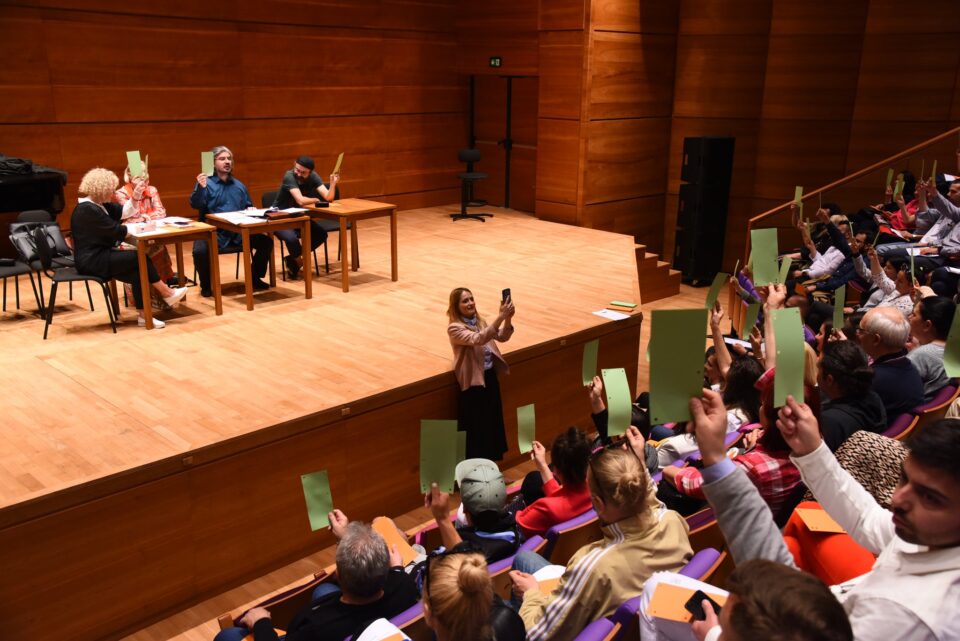Like everyone in the country, we, as cultural workers under the Ministry of Culture, were taken aback by the decision of our ministry to form three new cultural institutions, says the Culture Trade Union.
We are aware that these newly established institutions can make a positive and stimulating contribution to the cultural processes in the country, especially the formation of an orchestra in Bitola, one of the largest cultural centers in the country, and what this will mean for many talented and proven musicians, and even more for the audience from this city. Of course, there are also young and talented Albanian artists and musicians, who will have a new platform on which they can express themselves, and create. However, as a representative union of over 1300 employees in culture, we cannot help but ask a few things: No matter how justified the establishment of these institutions is, it was done non-transparently and without a single day of public debate. The state and the Ministry of Culture as its representative are obliged to be transparent and accountable to the public for all processes that affect citizens. We learned about the intention as well as the decision itself from the announcement on the website of the ministry. Why does a country that strives for European values allow such omissions? As part of the working group for drafting the new Law on Culture, the representatives of the Ministry of Culture constantly point out to us the inevitability of decentralization of the largest number of national institutions throughout Macedonia and the mandatory transfer of founding rights from the state to the local level; those were the directives from the EU, with the explanation that we had too many institutions managed by the state. Hence, it is not at all clear to us why the state is now claiming to be the founder of these three new national institutions? Is the state going against its commitments? One thing it recommends in legislation, and another it does in practice? Where are the EU directives here? Is it creating new national institutions, and is it planning to decentralize the existing ones? What is the justification for the “Smilevo Congress” installation to grow to the level of a National Institution? We do not dispute the importance of the Smillevo Congress in Macedonian history, but as we know, the memorial museum in the village of Bitola has functioned without problems in conjunction with the NU Institute and Museum of Bitola. Smilevo, dedicated to the Smilevo Congress. Therefore, can we expect that other museum installations, which are part of the institutions of protection in the future, without public debate and possibly some elaboration on their justification, will grow into national institutions? Finally, of course, there is the current economic crisis that has caught us all and affected cultural workers as well. In the past period, cultural employees were publicly warned that there might be no money for salaries, ways were sought to circumvent Article 65 of the Collective Agreement for Culture, and budgets and finances for the implementation of annual programs were cut on the grounds that the finances would be repurposed for salaries, it was recommended to economize and work with the lights off. Much-needed employment was not realized, salary supplements were not paid for difficult working conditions in accordance with the Collective Agreement, financial resources were not approved for professional positions in protection. The necessary promotions have been stopped in almost all cultural institutions. Existing institutions are physically disintegrating, and the state is improvising and opening new ones in a non-transparent manner. And now we ask ourselves, is the financial crisis in culture over, because, in all this situation, the state found money to form new national institutions in culture? Will the financing of new employment in these new national institutions mean: providing financial means for employment in already existing institutions where it is most needed, financial valorization of acquired professional titles and promotions. Will employees in culture get all the rights they deserve next year, or was the “lack of money” in culture just a narrative?! We invite Minister Bisera Kostadinovska Stojcevska to give answers to the questions.




Comments are closed for this post.